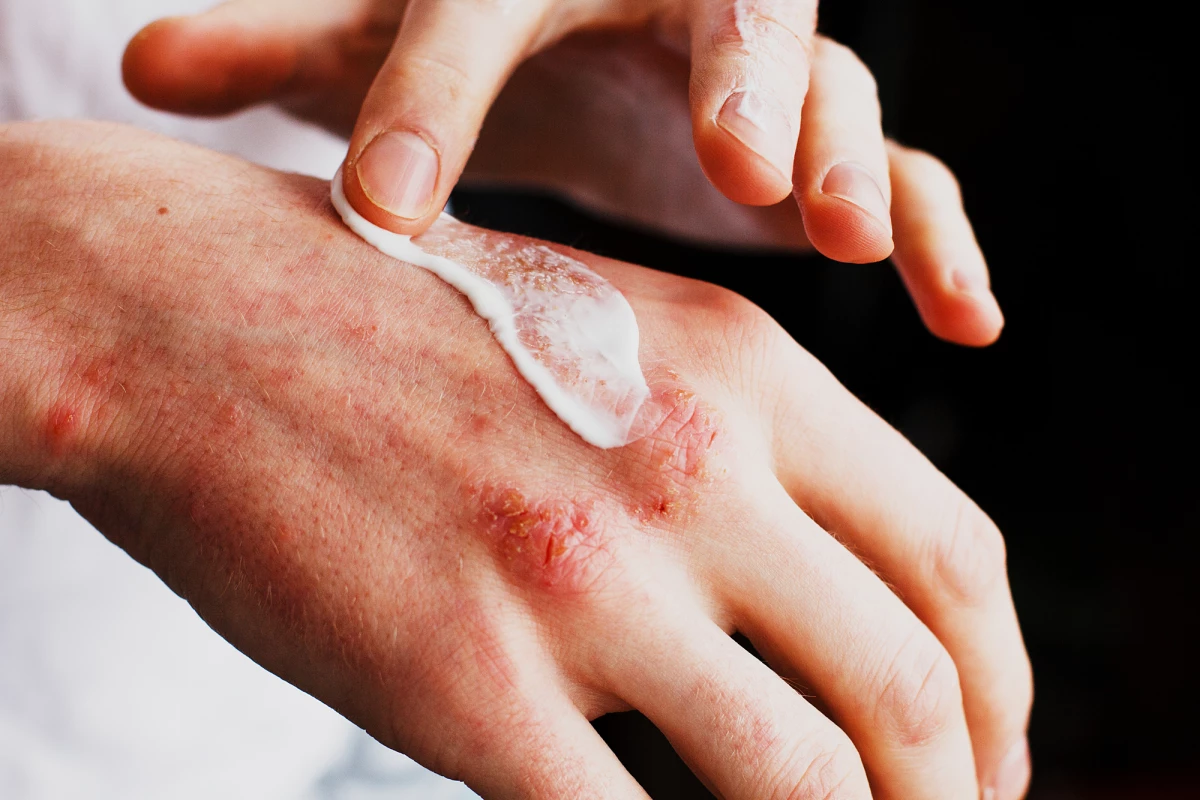Researchers have analyzed available topical and systemic treatments for eczema and identified the ones that are most effective. They say their findings present a full range of treatment options to inform the optimal management of this common chronic skin condition.
Atopic dermatitis (AD), often called eczema, is the most common chronic inflammatory skin disease, affecting 15% to 20% of children and 3% to 10% of adults worldwide. Often a lifelong condition, the inflamed skin and itching that are the hallmarks of the disease can interfere with sleep and impair quality of life.
Eczema treatment falls into two categories: prescribed topical agents like creams and ointments and ‘systematic’ or entire-body treatments that are used when topical agents fail to relieve symptoms. Systemic treatments include immunosuppressant drugs, monoclonal antibodies, and immune system modulators.
In an effort to inform and optimize eczema treatment, researchers from McMaster University in Canada have published two studies assessing the effectiveness of topical and systematic eczema treatments, looking at factors such as disease activity, sleep disturbance, itch severity, quality of life and adverse events.
In the first study, the researchers reviewed 219 randomized controlled trials of topical treatments for mild-to-moderate eczema – a total of 43,123 participants – and conducted meta-analyses. Comparing the effectiveness of 68 treatments against a control, they found that some treatments were clearly better than others.
Pimecrolimus (Elidel Cream), tacrolimus (Protopic), and moderate-potency topical corticosteroids (such as prednicarbate, methylprednisolone and triamcinolone) were among the most effective in reducing eczema severity, itch severity and sleep disturbance. There was little to no difference in the effectiveness of once- versus twice-daily topical treatments. Topical antibiotics used alone or in combination with other topical treatments were the least effective.
As with the first study, in the second, the researchers examined the effectiveness of systemic eczema treatments. They looked at 149 randomized trials with a total of 28,686 participants, comparing 75 treatments for moderate-to-severe forms of the disease. They found that high-dose upadacitinib (Rinvoq) was among the most effective treatments but among the most harmful in terms of adverse events. Upadacitinib is a Janus Kinase (JAK) inhibitor that reduces inflammation by decreasing the activity of the immune system (immunosuppressant). Dupilumab (Dupixent), lebrikizumab, and tralokinumab (Adtralza, Adbry) were of intermediate effectiveness and among the safest treatments. All three are human monoclonal antibody treatments.
The researchers hope that their findings will expand the treatment options available to people with eczema, as well as inform their caregivers and clinicians.
“Considering that AD is the most common chronic inflammatory skin disorder globally, our findings have important and immediate implications for achieving optimal AD outcomes,” said the researchers.
Both studies were published in the Journal of Allergy and Clinical Immunology; the first can be found here, the second here.
Source: McMaster University via Newswise





